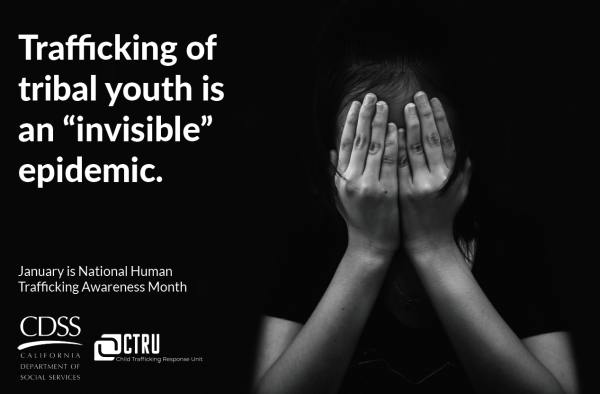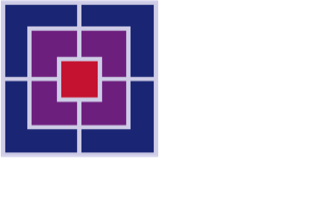Specialized Resources for Victims of Human Trafficking
Foreign National Minor Victims of Human Trafficking
Foreign national minor victims of human trafficking have specific vulnerabilities, which traffickers may exploit; such as fear of law enforcement or child welfare, lack of documentation to prove identity, immigration status, or knowledge regarding existing laws or workers’ rights in the United States. Furthermore, traffickers may threaten family members in the child or youth’s home country, confiscate passport or travel documents, isolate a victim from access to support and language access, or deny the child or youth of needed medical care.
Want To Learn More?
Check out our PACT Training Webinars:
Considerations In Serving Foreign National Minor Victims Of Human Trafficking
View Recorded Session Part 1 (June 21, 2020): The Federal Response
Gain an understanding of the role of OTIP in relation to supporting foreign national minor victims of trafficking, human trafficking indicators for foreign born children and youth, when and how to report a case to OTIP and the process and benefits of obtaining Interim Assistance and Eligibility Letters.
View Recorded Session Part 2 (June 29, 2020): The State & Local Response
Hear from the Refugee Programs Bureau, California Department of Social Services and International Rescue Committee Sacramento regarding the expansion of statewide benefits and services for immigrants in light of COVID-19 and access points for support and recovery.
Federal Resources
The Trafficking Victims Protection Act requires Federal, State, or local officials to notify the U.S. Department of Health and Human Services, Office on Trafficking in Persons within 24 hours after discovering a foreign national minor may have experienced labor or sex trafficking to facilitate the provision of assistance. To obtain support, use the Shepherd Case Management System and submit a Request for Assistance (RFA). For additional assistance download the Shepherd ACF OTIP Child Eligibility User Guide or review the Steps to Apply for Benefits and Service.
This assistance includes comprehensive case management services (e.g., food, clothing, housing, health care, and legal services) through a network of providers in the U.S. and its territories. View PACT’s Matrix of California Specialized Service Providers to find an organization in your community that can provide support.
Contact the Office on Trafficking in Persons (OTIP) Child Protection Specialists at 202-205-4582 or by email to ask questions regarding the process or to discuss potential cases. OTIP Child Protection Specialists host live monthly webinars on Responding to Child Victims of Trafficking. Register for an upcoming webinar or view OTIP’s Child Eligibility Training PowerPoint.
State Resources
In addition to federal program benefits, a state-funded program for trafficking victims was enacted through Senate Bill 1569 (Chapter 672, Statutes of 2006) and extended eligibility for benefits and services to noncertified victims of human trafficking and other serious crimes to the same extent as refugees, and is administered by the Refugee Programs Bureau with the CDSS.
For more information and eligibility requirements for the state-funded Trafficking and Crime Victims Assistance Program (TCVAP), see All County Letter No. 06-60 or view this Human Trafficking Fact Sheet.
Benefits and services available to certified trafficking victims and other victims eligible for the TCVAP, and their eligible family members, include cash assistance, food assistance, medical assistance, and social services to assist with adjustment and facilitate self-sufficiency.
Minors who are in the U.S. and are identified as a trafficking victim by the Office of Refugee Resettlement (ORR) are eligible to participate in the Unaccompanied Refugee Minors (URM) program. The URM program provides foster care and resettlement services to minors who are refugees, asylees or trafficking victims, and are in the U.S. alone without a parent or close relative willing or able to care for them.
Supplementary Toolkit Materials
Native American Youth

"Human trafficking involves the exploitation of a person for the purpose of compelled labor or a commercial sex act. Native communities have a history with this issue that goes back centuries, but the United States has only recently begun to systematically address this issue domestically. Indigenous peoples worldwide are at particular risk for both sex trafficking and labor trafficking."
Combating Trafficking Native Youth Toolkit
The Native Youth Toolkit on Human Trafficking was produced through a partnership between the Office on Trafficking in Persons and the Administration for Native Americans and provides information on trafficking within native communities. View the Combating Human Trafficking in Native Communities Fact Sheet for a list of available resources and trainings.
Recommended Resources
Office On Tribal Affairs
California Department Of Social Services
Contact the Office on Tribal Affairs
The Office of Tribal Affairs cultivates informed participation and trusting relationships with and among the Tribes, California Department of Social Services, and Counties to enhance the well-being of American Indian children and families.
Intertribal Council Of California
Established in 1968, Inter-Tribal Council of California, Inc. (ITCC) is a statewide association of 47 tribes in California. ITCC is governed by a General Council comprised of tribal representatives designated by resolutions of tribal councils. The General Council elects the members of the Board of Directors who are responsible for over-sight of ITCC. Over the 45 year history, ITCC has successfully created programs and services impacting health, education, economic, social, cultural, environmental, legal and tribal governance development for tribal people throughout California.
Sovereign Bodies Institute
(SBI)
SBI is a home for generating new knowledge and understandings of how Indigenous nations and communities are impacted by gender and sexual violence, and how they may continue to work towards healing and freedom from such violence.
Strong Hearts Native Helpline
Established in 1968, Inter-Tribal Council of California, Inc. (ITCC) is a statewide association of 47 tribes in California. ITCC is governed by a General Council comprised of tribal representatives designated by resolutions of tribal councils. The General Council elects the members of the Board of Directors who are responsible for over-sight of ITCC. Over the 45 year history, ITCC has successfully created programs and services impacting health, education, economic, social, cultural, environmental, legal and tribal governance development for tribal people throughout California.
National Human Trafficking Hotline
Call 1-888-373-7888 | Text BEFREE (233733)
The national, toll-free hotline, available to answer calls, texts, and live chats from anywhere in the United States, 24 hours a day, 7 days a week, in more than 200 languages. The National Hotline’s mission is to connect human trafficking victims and survivors to critical support and services to get help and stay safe, and to equip the anti-trafficking community with the tools to combat all forms of human trafficking. The hotline can assist in linking victims to culturally responsive services in your community.
National Indigenous Women's Resource Center
(NIWRC)
Dedicated to reclaiming the sovereignty of Native nations and safeguarding Native women and their children. They conduct public awareness campaigns, develop resources, provide training and technical assistance, develop policy, and conduct research.
View the 2020 Report: Colonization, Homelessness, and the Prostitution and Sex Trafficking of Native Women published by the National Resource Center on Domestic Violence among other valuable resources here.
Urban Indian Health Institute
The Urban Indian Health Institute creates resources for urban Indian-serving organizations as well as health institutions, legislators, and Native communities in order to inform services, programs, and policies. The 2018 report Missing and Murdered Indigenous Women & Girls, sheds light on the crisis in 71 urban cities in the United States, offers a necessary snapshot of the epidemic and is a call-to-action to protect Native women and girls.
